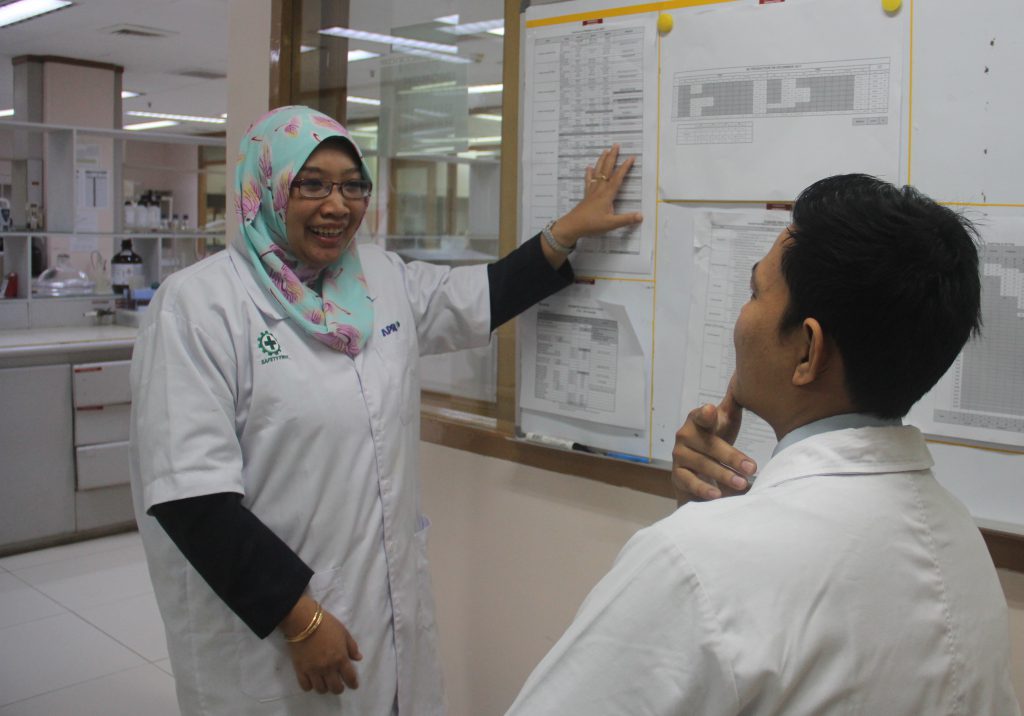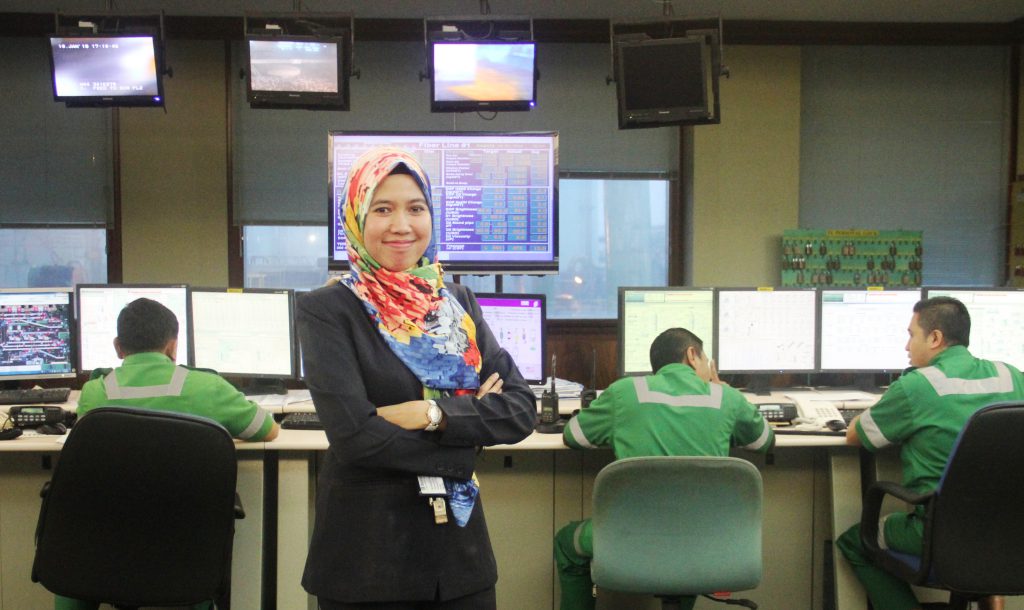Female Leaders in Indonesia’s Forestry Sector
Underneath the ready smile and mild mannerism of Itsna Lathifah Lasmaretty and Sri Wahdini Rahmi lie grit, ambition and leadership qualities needed to climb up the ranks at one of the world’s largest pulp and paper companies.
In less than 10 years of working in the traditionally male-dominated forestry industry, both Itsna, Process and Pulp Product Quality Assessment Area Head at the Technical Department, and Sri, Continuous Improvement Champion, entered middle-management level at APRIL’s operations unit, PT. Riau Andalan Pulp and Paper (RAPP), working in the rural area of Riau province.
As one of Indonesia’s largest pulp and paper manufacturers, APRIL is working towards contributing to the Indonesian government’s achievement of the Sustainable Development Goals (SDGs).
The SDGs are a set of goals, targets and indicators that United Nations member states adopted to frame their agenda for the next 15 years to end all forms of poverty, fight inequalities and tackle climate change. Goal 5 seeks to achieve gender equality and women empowerment.

From UN Women’s website: 5.5.2 Proportion of women in managerial positions.
Itsna is in charge of production quality strategies, while Sri looks across several departments to check that work productivity and efficiency standards are met. Itsna manages a team of 30 technicians, comprising slightly more men than women, while Sri leads four colleagues.
APRIL’s current workforce is 89% male, reflecting the male-dominated global forestry industry, according to the UN Food and Agriculture Organization (FAO).
The company’s remote working location of Pelalawan district, Riau province has prompted APRIL to build an on-site training centre and programs to improve the locals’ skill set, as well as to encourage more local talents to work for the company.
The women’s journey at APRIL has followed similar paths, with both joining as graduate trainees with a degree in chemistry. After two years on the job and upon finishing their graduate trainee programme, they were selected to participate in a Masters Programme at the Asian Institute of Technology in Bangkok, Thailand.
It wasn’t always smooth sailing as they each faced challenges. Itsna recalled her mother dissuading her from continuing with the company as the elder woman was worried about her daughter’s safety since she worked the overnight shifts.

Itsna Lathifah Lasmaretty
“At the start, I reported for my night shift at 11pm and left work at 7am, and this worried my mother who asked about my safety. Her concern was understandable,” said Itsna, 35. “Even though there were not many women working there at that time, I felt safe because the security guards watched out for us.”
Sri faced a different sort of challenge: cultural perception of a woman’s role. She explained: “Since my job involves a lot of coordination and giving instructions, some men were not accepting of having a woman telling them what they should do.”

Sri Rahmi Wahdini, Continuous Improvement Champion, at one of the locations she oversees.
“So, I took time to build trust,” she said, adding: “I show them that I am competent at what I do, initiate collaboration with them and am always ready to offer help.”
Similarly, Itsna said she had to work at earning the trust from her male colleagues. “In my earlier years, I even did the minutes of meeting to show that I was dedicated and cooperative, but it was also because I really wanted to learn on the job”, she said.
The women didn’t think twice about getting their hands, or rather, boots dirty as they ventured out to the field to collect samples or check on instruments’ measurements.
Said Itsna: “I talk to the technicians to understand their constraints and show them that I am interested. This helps because, after all, it takes people to run the pulp industry, so one should build better relationships.”
Now, both are seeing more women entering their industry. “This is a good trend because women bring a different set of skills; some tend to be more detailed and thorough, and this can complement the skills of their male colleagues,” said Sri, 34.
Indeed, for Itsna and Sri, it was not only the commitment to their jobs that earned them respect and enabled them to become successful female leaders.; It was also their commitment to continuous learning and a determination to demonstrate that they are capable managers in the competitive forestry industry.



